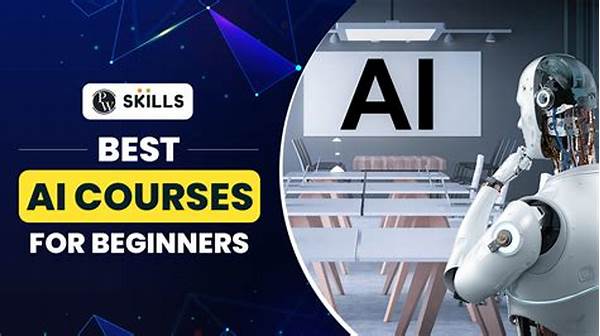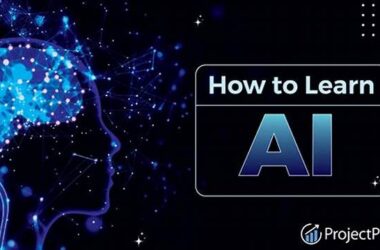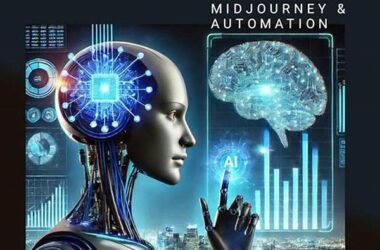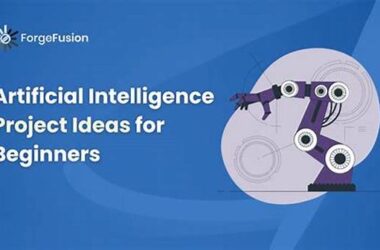How AI Courses Help Beginners Transition
Artificial Intelligence (AI) stands as a beacon of technological advancement, promising to revolutionize nearly every aspect of our daily lives. From self-driving cars that promise to make commuting safer and more efficient, to AI-driven personal assistants that can manage our schedules, the potential applications of AI are vast and varied. But what about those just starting out in this exciting field? How do beginners transition into the world of AI, a domain that seems complex and intimidating at first glance? The answer lies in the myriad of AI courses available today that are specifically designed to help novices take their first steps in this fascinating area. These courses not only provide a comprehensive introduction to AI concepts but also equip learners with the skills necessary to navigate the more intricate aspects of AI technology. In this age of rapid technological growth, understanding how AI works is akin to wielding a powerful tool that can unlock numerous opportunities in the job market.
Read More : Ai Animating Beginner Notebook.ipynb
To further illustrate, let’s consider Sarah, a marketing professional by trade, who decided to pivot her career towards AI. Initially, she had no idea where to begin. However, after enrolling in an AI course tailored for beginners, she quickly found herself demystifying complex algorithms, understanding machine learning models, and even creating her own simple AI tools. Transitioning was not just a leap of faith for Sarah; it was a strategic move facilitated by the course’s step-by-step guidance and interactive learning modules. How AI courses help beginners transition is not just through theory, but through practical applications that boost confidence and inspire innovation.
Moreover, AI courses break down the complexities of coding and algorithm development into digestible bits. They offer a supportive community where learners can exchange ideas, troubleshoot problems, and celebrate victories together. This community aspect is crucial for beginners who might feel isolated or overwhelmed when learning a new technical skill. Notably, many courses provide real-world projects which reflect current industry challenges, thereby preparing students for the job market. In essence, these courses transform novices into adept AI practitioners who are ready to tackle the digital problems of tomorrow.
From Novice to Expert
How AI courses help beginners transition is mirrored in many success stories akin to Sarah’s. These courses are self-paced, catering to individuals juggling different commitments. As such, they offer flexibility while maintaining an engaging and rigorous curriculum. Moreover, they cater to different learning styles—whether one learns best through videos, podcasts, or hands-on projects, there’s something for everyone.
—
Effective Transition: Skills and Knowledge
AI courses are not just about imparting knowledge; they’re about building skills. They offer a structured curriculum that includes foundational topics like programming languages, neural networks, and data analysis. This structured approach ensures learners build a strong foundation before advancing to more complex topics.
Creating a Learning Pathway
Step-by-step learning paths crafted in these courses guide learners through essential concepts. The courses are designed to layer information in a way that builds upon the previous lessons, ensuring a solid grasp of fundamentals before moving to more advanced topics. This meticulous planning ensures no one is left behind, making it easier for beginners to transition seamlessly into more advanced material.
Real-world projects, often a significant component of these courses, provide practical experience. Learners work on projects that mirror real-world challenges, which not only enhances understanding but also creates a portfolio of work that they can present to prospective employers. This hands-on experience is invaluable for those looking to switch careers or advance in their current roles.
Moreover, these courses facilitate networking opportunities through forums, group projects, and mentorship programs. Engaging with peers and industry experts further enhances the learning experience by exposing learners to diverse perspectives and solutions.
Goals of AI Courses to Help Beginners Transition
—
Transition Stories and Outcomes
Every AI learner’s journey is unique, much like fingerprints. For instance, consider John, a teacher with a penchant for tech-savvy solutions. He turned to an AI course amidst the pandemic, intending to innovate in digital education. How AI courses help beginners transition shone through his narrative of leveraging AI in virtual classrooms. He applied his newfound skills to develop an AI-driven app, revolutionizing remote learning.
The effectiveness of AI courses stems from their adaptability. They mold to fit the needs of diverse learner backgrounds, breaking geographical and professional barriers. Transition pathways are tailored, with courses offering both breadth and depth. Some focus on specific industries, such as healthcare AI applications, while others offer broader programming and data analysis skills.
Moreover, industry partnerships in AI courses provide learners with unique insights. Through guest lectures, webinars, and direct interactions with field professionals, students gain exposure to cutting-edge AI advancements. These experiences not only broaden horizons but also provide a glimpse into future possibilities within the AI landscape.
The anecdotes of transition are numerous. Many, like Sarah and John, are testament to how AI courses help beginners transition from uncertainty to mastery, equipped with both technical prowess and strategic thinking.
Building a Supportive Ecosystem
One of the standout features of these courses is the community they foster. Learners connect over shared experiences, challenges, and triumphs. Online forums and study groups built into these platforms create a safety net of support, encouraging continual learning and growth.
In conclusion, embarking on a journey into the world of artificial intelligence may seem daunting at first. Still, with the right tools and support, even the most novice learners can transition seamlessly into experts ready to change the world.
—
Illustrations of How AI Courses Help Beginners Transition
The journey through AI courses is, without a doubt, transformative. It’s about shifting mindsets, acquiring new skills, and preparing oneself for the digital future. Each module, interaction, and project is calculated to ensure learners emerge as confident, capable, and creative contributors to the ever-expanding field of artificial intelligence.



